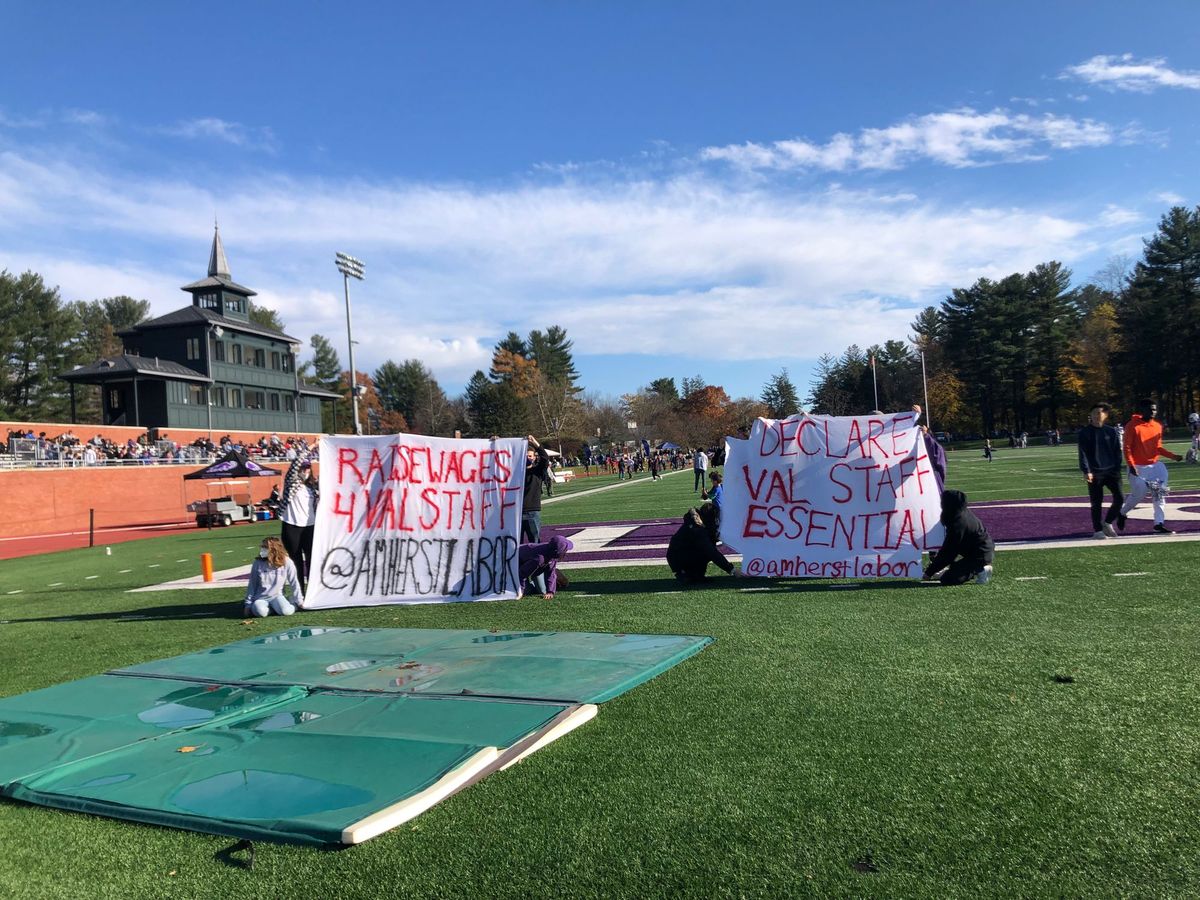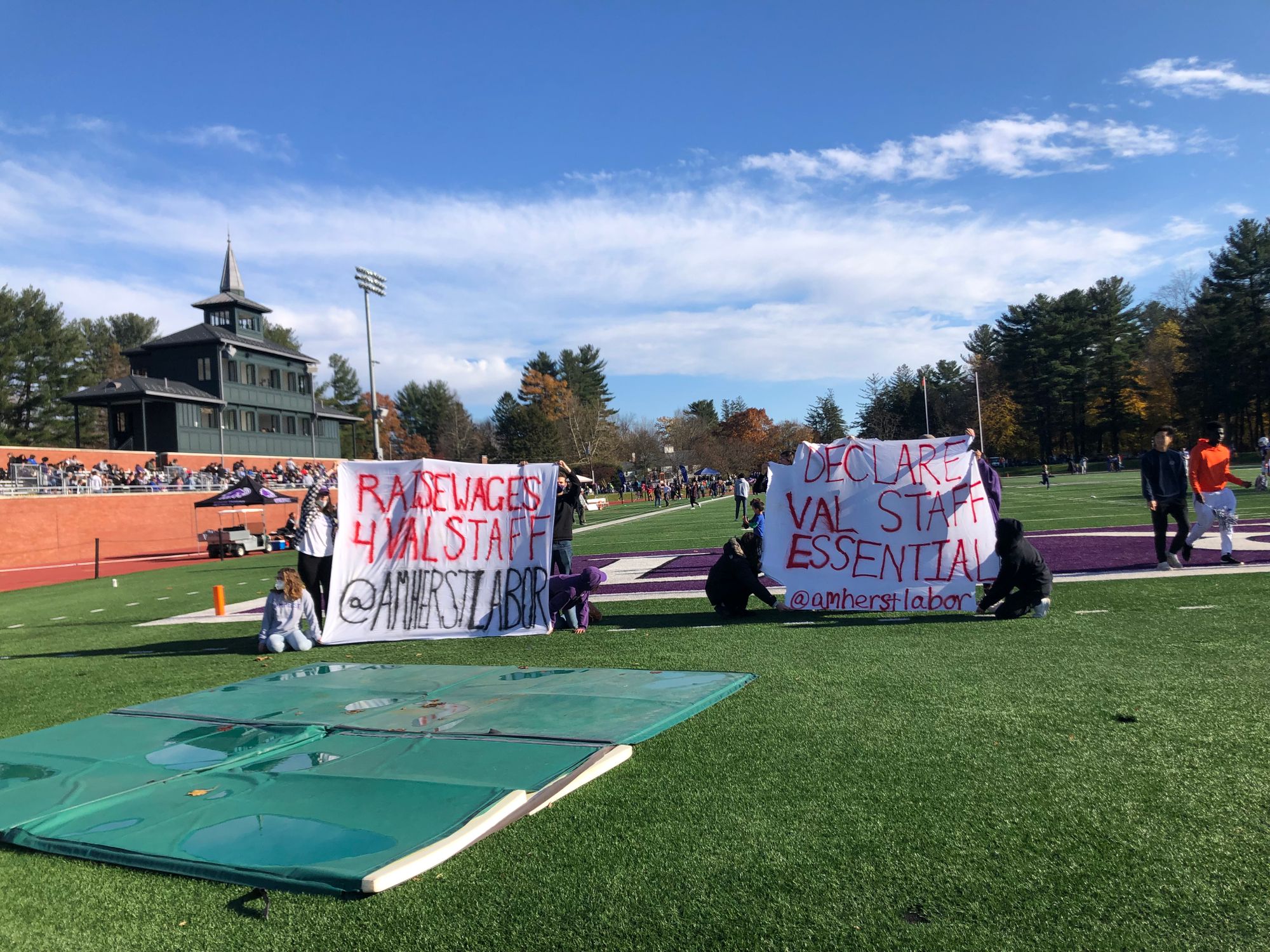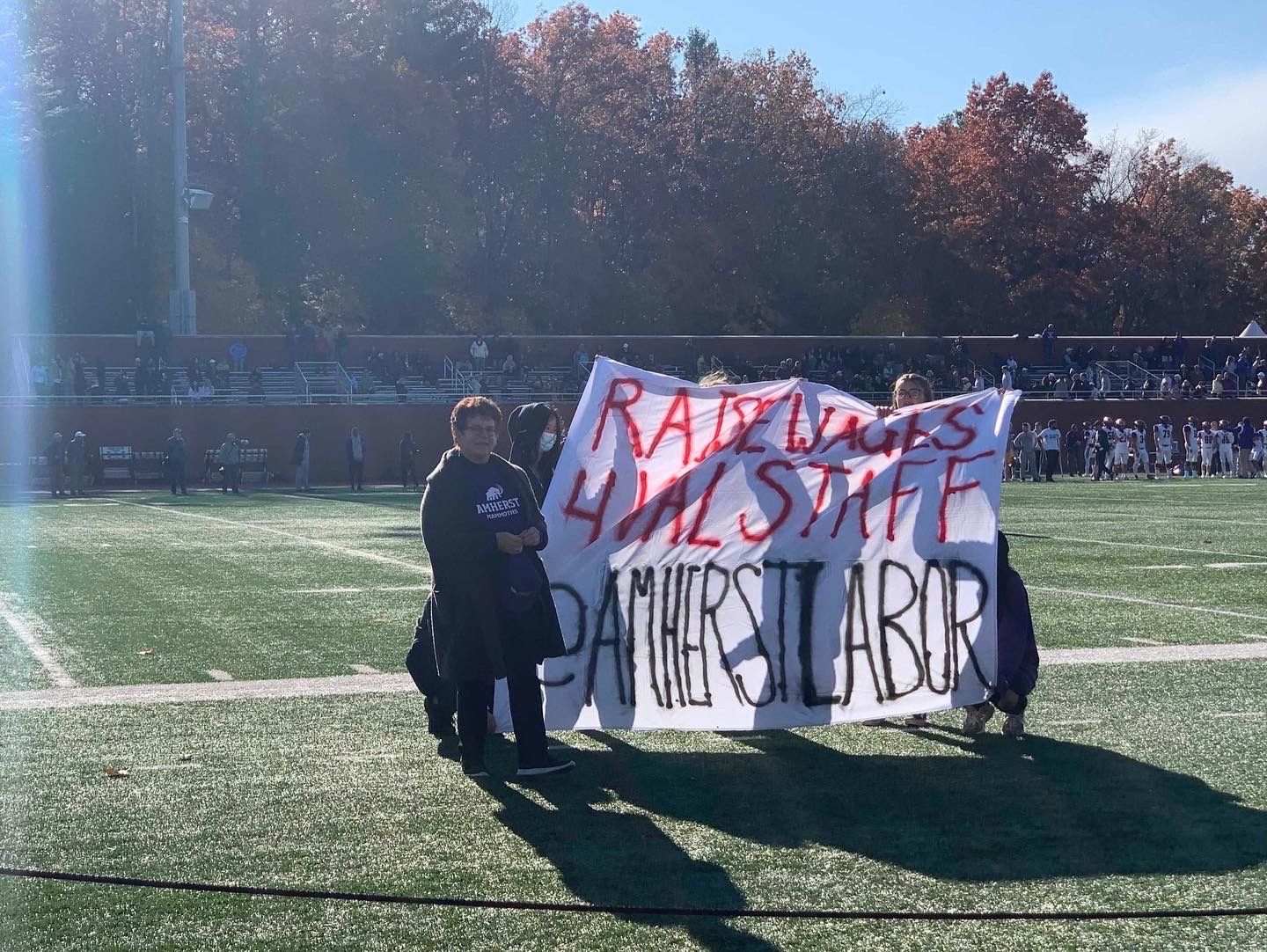College Converts Casual Staff to Benefited Positions
President Biddy Martin announced on Nov. 17 that the college will be converting some of its casual staff positions to benefited positions, an initiative that has been under discussion throughout the year. The announcement followed a student-led demonstration demanding for better pay for Val workers.


On Wednesday, Nov. 17, President Biddy Martin announced to staff and faculty that the college will be converting a significant number of its casual staff positions to regular benefited positions. The new positions will receive “an increase in pay commensurate with the college’s current pay structures, as well as the full range of benefits,” wrote Martin. She stated that 19 of the new positions will be offered to current casual employees working in excess of 24 hours per week, and workers will be recruited to fill an additional seven benefited positions.
According to Martin, casual positions were created over the years to staff a number of new dining and catering programs, but “it has been clear for some time that these expanded programs are needed for the long haul.” The college is able to fund the new positions due to the “unusually large endowment gains of this past year,” she noted. While the college will still have casual roles for short-term work the college aims to “use benefited staff for the core, day-in-day-out functions of Dining [Services]” going forward.
The new initiative has been discussed by the Committee on Priorities and Resources (CPR) and the Committee of Six throughout the academic year, and is intended to be completed by the end of the calendar year, the email stated.
The announcement comes on the heels of a banner demonstration held by students in the Amherst Labor Alliance, a newly formed group of students and staff working for better labor conditions at the college. The demonstration occurred during halftime at Amherst vs. Williams Homecoming football game on Saturday, when students from the Alliance walked onto the field and held up two large banners reading “RAISE WAGES 4 VAL STAFF” and “DECLARE VAL STAFF ESSENTIAL” for the audience of students, staff, faculty, and alumni to see. Many students shared photos and videos of the walk-on on their social media in support of the demonstration.
Both the demonstration and Martin’s announcement took place at a time of heightened student awareness of the mistreatment faced by college employees working on an understaffed and overenrolled campus. Grace Cho ’23E, a member of the Alliance, explained that they chose to call for raising the wages of casual dining employees — who currently make $15 an hour, down from the $20-per-hour or more hazard pay they received last year due to pandemic conditions — as “the most basic demand that we seem to hear from workers … that would generally improve their situations.”
Members of the Alliance reported that the walk-on was intended to raise visibility for the Alliance and bring more attention to issues surrounding working conditions on campus.
“Amherst College really hates bad press,” said Employee A, a member of the Alliance who works in Dining Services and asked to remain anonymous due to fear of retaliation. “I hope the walk-on adds more pressure to [Amherst College] since it wasn’t just other students who got to watch — there were also alumni, media, and students’ families attending.”
Indeed, as the group was walking off the field, the students made a decision to stand with their banners behind President Biddy Martin, who was on the side of the field participating in a press interview with Maud Mandel, president of Williams College. Cho noted that Martin did turn around and address the group after the interview, saying that she “agreed with what we were doing and thought that it was a good thing.”
Martin did also mention the administration’s plan to convert some casual positions to benefited positions while speaking to the group, Cho continued, but the group found the response unsatisfactory as the change had not been officially announced yet.

Even with the new positions, student members of the Alliance described the walk-on as only the beginning of necessary advocacy on behalf of staff at the college, who often feel they cannot openly speak out against their working conditions for fear of retaliation.
“Generally speaking, as students on this campus, we are in a more privileged position than the workers themselves,” said Kevin Gutierrez ’24, a member of the Alliance. “Because of that, we can use our position and the resources we have access to on this campus to help better the working situation of workers and eventually other workers on campus.”
Among staff, “there definitely is a culture of just accepting the treatment that you get,” elaborated Employee A. “[There’s] a feeling like ‘Okay, maybe it's not worth it to try and fight for this,’ because nobody in the upper management ranks or the more powerful people of Amherst College in general are really going to care all that much.” They noted that they, of course, couldn’t participate in the walk-on: “I would lose my job pretty much instantly.”
Jeanyna Garcia ’23, also part of the Alliance, explained that the goal is to eventually create a situation where workers are able to advocate for themselves. This includes “feel[ing] comfortable reporting any issues they may have and having clear channels of communication,” added Cho.
Members of the Alliance also emphasized that they hope to reach the student body with their work as well, not just the administration. Addressing “the culture of negligence on campus” and getting students to show respect for staff is as important as bettering their working conditions, said Gutierrez. Garcia echoed that the group “disrupt the extractive relationship” between students and staff, and “make sure students recognize that the workers they’re [interacting] with every day are humans as well.”
“I think there definitely are a lot of students that support Val workers getting paid more, [but] there's a lot that don't, and don't really care about what the lives are like for the people that feed them,” said Employee A. “I hope that in general, the walk-on can bring these issues more to the forefront and let people know there is something in the works, where people are actually going to try and fight for better treatment for Val workers.”





Comments ()